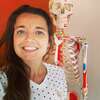Why can your osteopath help you after a miscarriage?
A miscarriage is a difficult experience, both emotionally and physically. At this delicate time, it's crucial to take care of yourself holistically. Osteopathy, often underestimated, can play a key role in this healing process.
What is a miscarriage?
Miscarriage generally occurs before the 20th week of pregnancy. Beyond this threshold, pregnancy loss is often referred to as stillbirth.
Miscarriage statistics
Overall miscarriage rate
It is estimated that 10-20% of confirmed pregnancies end in miscarriage. However, this number may be higher, as many miscarriages occur very early in pregnancy, sometimes before the woman even knows she's pregnant.
Impact of age on miscarriage
The age of the pregnant woman is a major determining factor. In women under 35, the risk of miscarriage is around 10-15%. This risk increases with age, reaching around 20-25% in women aged 35-39, and up to 50% or more in women over 40.
Recurrent miscarriages
Approximately 1-2% of women may experience recurrent miscarriage (defined as two or more consecutive miscarriages). This condition often requires medical investigation to determine the underlying causes.
Causes and risk factors
Miscarriages are often caused by chromosomal abnormalities in the embryo or fetus, making normal development impossible. Other risk factors include:
- Mother's advanced age (over 35).
- Chronic health problems, such as uncontrolled diabetes.
- Certain infections or diseases.
- Abnormalities of the uterus or cervix.
- The use of harmful substances, such as tobacco, alcohol and certain drugs.
Symptoms of miscarriage
Symptoms of miscarriage can vary, but the most common include:
- Vaginal bleeding, which can range from mild to severe.
- Cramps and pain in the lower abdomen.
- Loss of tissue through the vagina.
- A reduction in the usual signs of pregnancy, such as nausea and breast tenderness.
Diagnosis and treatment
If a miscarriage is suspected, an ultrasound and blood tests can be carried out by a healthcare professional to confirm the loss of pregnancy.
In most cases, the body naturally expels the fetal tissue. However, in some cases, medical treatment or surgery, such as curettage, may be necessary to avoid complications.
Emotional impact and support

A miscarriage can have a profound emotional impact, leading to grief and distress. It is essential that women and their partners receive adequate emotional support. Support groups, therapy and open discussions with friends and family can help.
Osteopathy and miscarriage
A miscarriage entails significant physical and hormonal changes. The body must not only recover from pregnancy loss, but also readjust its hormonal and reproductive systems. This can lead to musculoskeletal imbalances, pelvic pain and digestive disorders, all of which osteopathy can help with.
The holistic approach to osteopathy
Osteopathy is an alternative medical practice that aims to restore balance and harmony to the body. Through gentle manipulation, it helps to release tension and rebalance the body. This approach is particularly beneficial after a miscarriage, as it takes into account the body as a whole.
Musculoskeletal rebalancing
The osteopath can work on the musculoskeletal imbalances caused by the miscarriage. By targeting specific areas, such as the pelvis or back, osteopathy helps to relieve pain and restore mobility.
Hormonal and emotional support
In addition to the physical benefits, osteopathy can also help manage hormonal and emotional aspects. The relaxation and breathing techniques used can reduce stress and promote better hormonal balance.
What's more, an osteopath takes the time during the consultation to give you the best possible psychological support.
Improving traffic flow
Osteopathy improves blood and lymph circulation, which is essential for eliminating toxins and promoting healing. Better circulation also helps reduce swelling and inflammation.
Miscarriage: still a taboo

Despite advances in reproductive health awareness and support, miscarriage remains a largely taboo subject in many societies. This silence, often fraught with consequences, leaves many women and couples alone to face their grief and questions. Here are the reasons for this taboo and its repercussions, along with suggestions for a change of perspective.
The roots of the miscarriage taboo
- Lack of knowledge: A general ignorance of the facts surrounding miscarriage contributes to stigmatization. Many people are unaware of the frequency of miscarriage and its causes, which are often beyond the parents' control.
- Cultural norms: In many cultures, motherhood is idealized, and failure to carry a pregnancy to term is wrongly perceived as a personal failure or a matter of shame.
- Silence and isolation: The lack of open dialogue about miscarriage reinforces feelings of isolation among those who experience it. This can lead to unexpressed grief and emotional complications.
Consequences of the miscarriage taboo
The silence surrounding miscarriage has profound repercussions:
- Psychological distress: Affected women and couples may suffer psychological distress, including depression, anxiety and feelings of guilt.
- Social isolation : Lack of recognition of the grief associated with miscarriage often leads to social isolation.
- Lack of support: The absence of open dialogue prevents adequate support, both medical and emotional.
Talking about miscarriage to help women and men
- Education and awareness: Informing the public about the reality of miscarriage can help demystify the phenomenon and reduce stigma.
- Encouraging dialogue: Creating spaces where people can talk freely about miscarriage can offer crucial support to those affected.
- Psychological support: Providing appropriate psychological support is essential to help those affected through their bereavement.
- Involvement of the media and celebrities: The involvement of the media and public figures in raising awareness can play a significant role in normalizing the subject.
Miscarriage, far from being a simple medical incident, is a deeply personal and often painful experience. Breaking the taboo surrounding it is crucial to providing adequate support and acknowledging the grief of those who experience it. As a society, it is our responsibility to transform our approach to miscarriage, from stigma to compassion, from ignorance to understanding.
Conclusion about miscarriage
In conclusion, miscarriage is a complex ordeal that goes far beyond a simple medical event, profoundly affecting women and their partners both physically and emotionally. In this context, osteopathy emerges as a valuable ally, offering holistic care to support women in their healing process after miscarriage.
Osteopathy, with its gentle, personalized techniques, not only addresses the musculoskeletal imbalances and hormonal disruptions following miscarriage, but also plays a crucial role in managing the emotional and psychological aspects of this loss. By rebalancing the body, improving circulation and helping to manage stress, this approach contributes greatly to a woman's overall well-being.
At the same time, it is essential to recognize miscarriage not only as a medical issue, but also as a human experience that requires empathy, support and open dialogue.
Beyond individual treatment, recognition of osteopathy's role in recovery from miscarriage raises a broader question: that of our collective approach to miscarriage. Breaking the taboo surrounding this experience means recognizing and validating the experiences of women and couples, and paving the way for better understanding and more effective support. By educating and raising awareness, encouraging open dialogue and offering appropriate psychological support, we can transform our perception of miscarriage from an isolated and stigmatized experience to one that is shared and supported.
In conclusion, osteopathy, with its holistic and empathetic approach, plays a crucial role in healing after miscarriage. As practitioners, health advocates and community members, we have a responsibility to support women and couples through these difficult times, while working for societal change that recognizes, respects and supports experiences of loss and healing. It is by approaching miscarriage with compassion, understanding and holistic care that we can truly help those affected by this experience, promoting complete healing, both physical and emotional.
Marie Messager
Osteopath D.O
2 rue Alexis de Tocqueville
78000 Versailles

